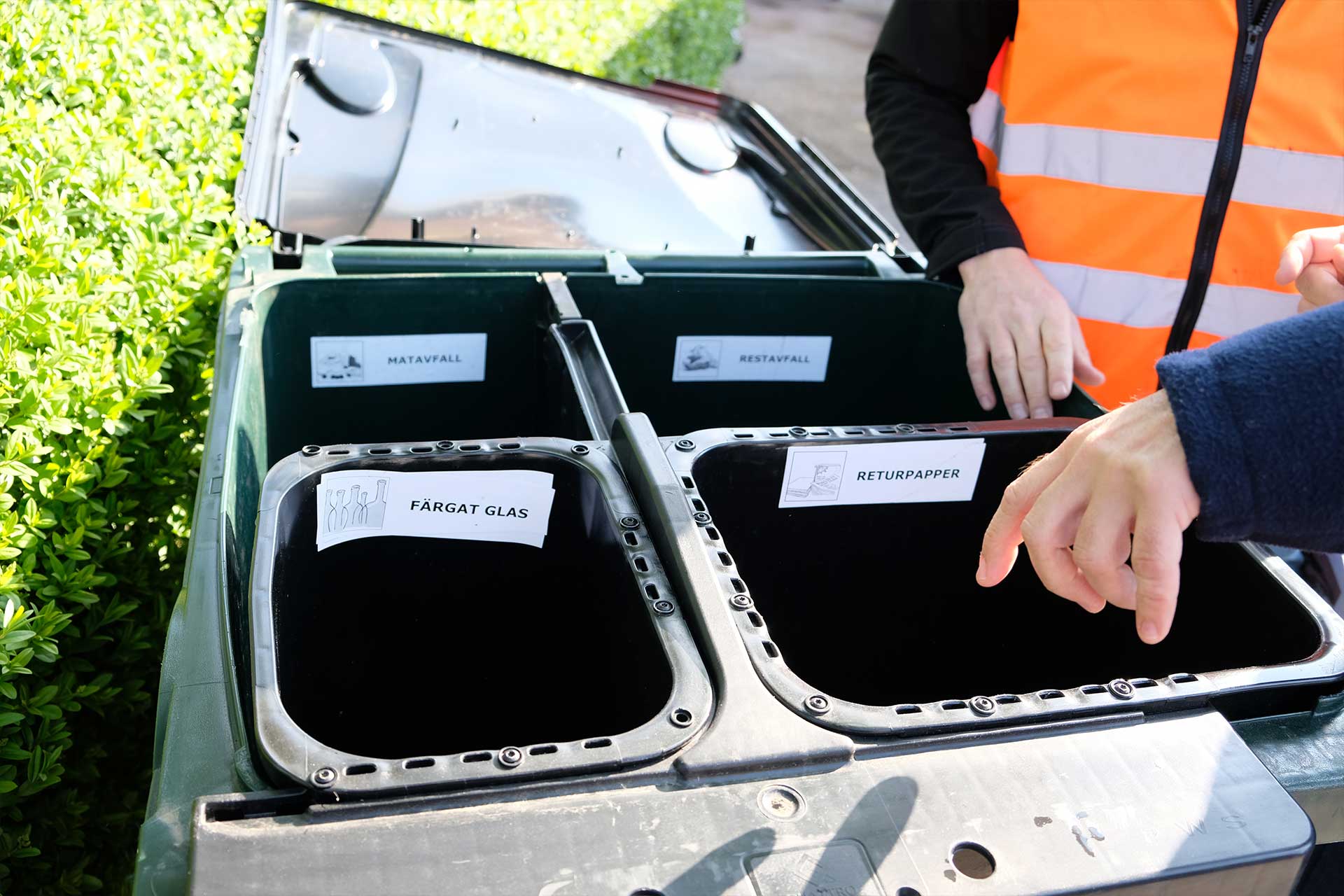
Learning from a circular economy pioneer
Back in the 1990’s, 60% of waste went to landfill in the Swedish city of Lund. Today it’s less than 2%, and the region is a pioneer of the burgeoning circular economy.
How did they do it? “A combination of goals, waste management, politicians and citizens’ common will,” according to Erik Rånlund, from the Municipaility of Lund.
Last week we went to Lund to see for ourselves how they brought about this transformation.
It starts at home
Residents of Lund have no less than eight waste bins for different materials: food, coloured glass, clear glass, cardboard, printed paper, metals, plastics and residual waste. This initial separation is fundamental to the success of Lund’s recycling system.
To simplify collection in urban areas, the city installed underground communal bins. These bins extend three metres underground, and are drawn up into the sky in order to be emptied by the city garbage trucks.
Suburban residents are the proud owners of two extra-large wheely-bins, each with four compartments for different types of waste. To handle these bins, the city waste management company commissioned a funky collection truck, also with four chambers.
Getting value from waste
Waste sorting by residents results in a very clean separation of materials. This makes it easier to recycle them into high value materials.
At the regional processing plant, run by SYSAV in nearby Malmö, food waste is converted into biofertilisers and biogas. Packaging and paper waste is sent around Sweden where they are recycled into new products.
The Lund region also has one of the world’s most advanced waste-to-energy plants, meaning any residual waste that can’t be recycled is turned into heat and electricity.
Lund is now so good at recycling that other EU countries export their waste there for processing.
All this activity has made Lund a hub for innovative companies working on circular economy: food packaging producer Tetra Pak was founded here, among others.
Sharing responsibility (and rewards)
All stakeholders have their own role in this success story.
Companies that sell plastic bottles in Sweden must themselves pay for their recycling. Producers such as Coca-Cola fund a deposit scheme, whereby consumers return their plastic bottles to machines in supermarkets.
Citizens remain central to the success of the whole system. And Lund works hard to communicate and emphasise the benefits of recycling for residents.
Compost made from garden waste is for sale around the city. Instead of running on fossil fuels, garbage trucks and other municipal vehicles run on biogas made from food waste. The waste-to-energy plant serves the district heating system, bringing hot water into houses across the city.
What next?
The Municipality of Lund refuses to rest on its laurels. A futuristic underground vacuum system will be installed in 2020, making waste trucks redundant in one part of the city.
Recognising that prevention is top of the waste hierarchy, the authorities are also focusing more attention on campaigns to reduce the amount of waste produced in the city.
In the SCALIBUR project we aim to transfer some of the knowledge from Lund to three pilot municipalities – Madrid, Albano Laziale and Kozani – focusing on food waste and sewage sludge.
This information will also be shared with other EU municipalities through a training programme and workshops, foreseen in 2020.
Find out more:
www.lund.se
www.sysav.se

No Comments
Comments are closed.